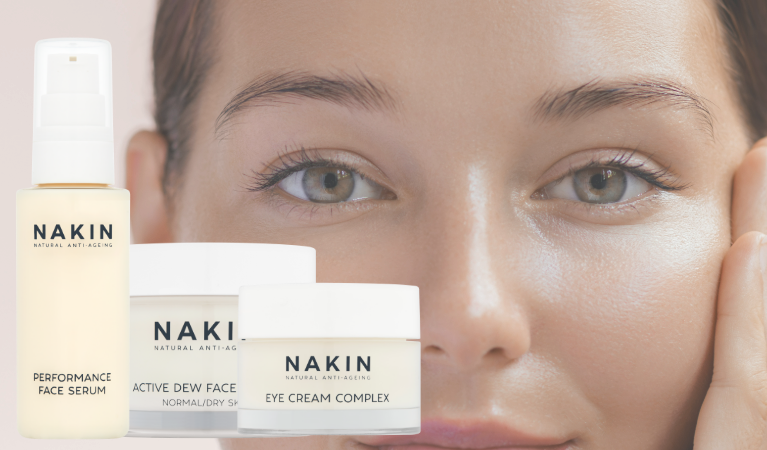Why Has My Skin Become More Sensitive as I Get Older?

At Nakin we often receive messages from customers advising us that their skin has become more sensitive as they get older. This is completely normal and one of the reasons that we make our natural anti-ageing face products to be so kind to skin. We have a range of cleansers, treatments and moisturisers that are lovely for sensitive skin at every age.
Why Has My Skin Become More Sensitive as I Get Older?
Ever noticed how your skin seems to react more readily to products and environmental factors now than it did in your younger years? You're not alone. Skin sensitivity is a common concern as we age, and understanding why this happens can help you better manage and care for your skin.
Understanding Sensitive Mature Skin
Our skin is the body's largest organ and acts as a barrier to protect us from external elements. However, as we age, this barrier can become compromised, leading to increased sensitivity. Here are some reasons why sensitive mature skin becomes more prevalent:
- Thinning of the Skin
One of the most significant changes that occur with ageing is the thinning of the skin. The dermis, or the middle layer of the skin, loses collagen and elastin fibres, which are essential for maintaining skin's strength and elasticity. This thinning can make the skin more fragile and susceptible to irritation and damage.
- Decreased Oil Production
Sebum, the natural oil produced by our skin, plays a crucial role in maintaining the skin's moisture barrier. With age, our sebaceous glands produce less sebum, leading to drier skin. This dryness can make skin feel tight, itchy, and more sensitive to external irritants.
- Slower Cell Renewal
The skin's ability to renew itself slows down as we age. This means dead skin cells can accumulate on the surface, leading to a dull appearance and making the skin more prone to irritation. Exfoliating gently can help but should be done with care to avoid further sensitivity.
- Weakened Immune Response
Our skin's immune system also weakens with age. This reduced immune response means the skin can become less efficient at warding off infections and healing itself. This can lead to increased inflammation and sensitivity.
- Environmental Factors
Years of exposure to environmental aggressors such as UV rays, pollution, and harsh weather conditions can take a toll on the skin. Over time, these factors can damage the skin's barrier function, leading to increased sensitivity.
- Changes in Hormones
Hormonal changes, particularly those associated with menopause, can significantly impact the skin. A decrease in oestrogen levels can lead to drier, thinner, and more sensitive skin.


Leave a comment